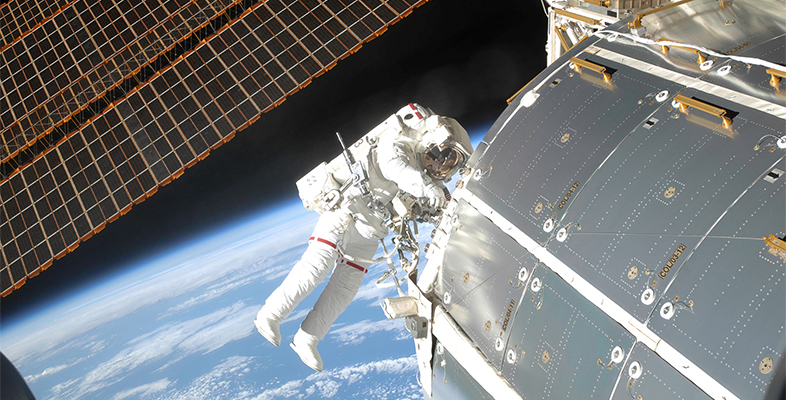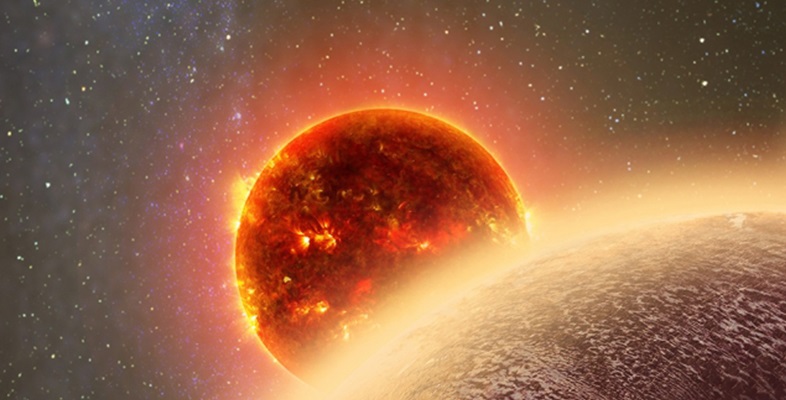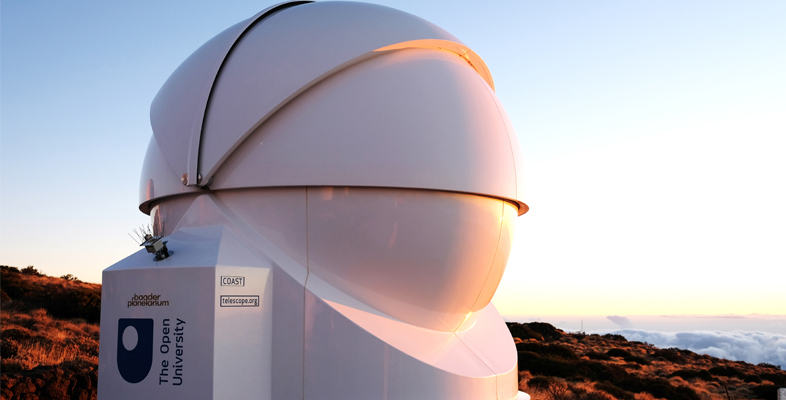What’s been your journey to astrobiology?
If you were to ask my mother, she’d say it was because she didn’t send me to space camp, so I didn't get space out of my system!
I’ve loved space since I was a kid. As a teenager, I was sure that I was going to become an atmospheric chemist and study Neptune. Then I took a chemistry class … But it turned out that I'm really good at connecting dots and understanding abstractions, which led me to studying the political and cultural aspects of space. Later, I started researching decolonial (or anti-colonial) theory, which led me to see parallels between the way we talk about exploring space and the way in which Western powers colonised the world.
For my PhD, I explored those ideas in depth and that’s how I came to where I am now. I’m looking at the ethical implications of the colonial construction of being human and what that says about being human as we go into space.
Issues arising from countries’ colonial pasts are at the front of our minds right now. Could you talk more about how ideas of decolonialisation apply to space?
I had lunch with my mother recently. Although I’m American, I haven’t lived in the US for a while, so when she asked me to pay the bill, I looked really closely at the money. One of the coins was a Florida quarter, declaring Florida to be the ‘gateway to discovery’.
 From the sixteenth-century galleon to the twentieth-century
Space Shuttle, we’ve used colonial ideas of ‘discovery’ and ‘exploration’. But
often that language is used to cover up historical tragedies, such as
proclaiming the westward push across America in the nineteenth century as ‘manifest
destiny’, not as genocide of indigenous peoples. So we must be very clear when
we talk about going into space as being our human destiny.
From the sixteenth-century galleon to the twentieth-century
Space Shuttle, we’ve used colonial ideas of ‘discovery’ and ‘exploration’. But
often that language is used to cover up historical tragedies, such as
proclaiming the westward push across America in the nineteenth century as ‘manifest
destiny’, not as genocide of indigenous peoples. So we must be very clear when
we talk about going into space as being our human destiny.
Space! The ‘final frontier’! Let’s found a colony on the Moon! We don’t have to fix this world! Let’s build a city on Mars! If you can’t pay the fare, become an indentured servant and work off your debt! That kind of language raises questions. Who is using it? Who does it empower and who does it exclude? Who gets the benefit of going to these places?
Of course, most people who love space don’t have those intentions. They just want to study the rocks on Mars or the oceans of Enceladus. But without a careful understanding of the historical and social aspects of the work we do, we could be reinforcing inequality.
That would be sad, because space is a shared human … space, isn’t it?
I've never met a person who hates space. Everyone on the planet has a relationship to space. That’s heart-warming. When I look up at the stars, I feel humble in that grandness. I am part of the universe experiencing the universe. What could be better than that?
Societies have different understandings of the way we live together and relate to the world but we all have the stars. But do we all have access to the stars? That’s a different question. We could have a common humanity in space but that requires the whole of humanity can access it.
One of things I love about space is that although space exploration has the possibility of making inequalities worse, it also could make things better. There’s a sense of hope. Space exploration is not just a reflection of who we can be as a species but who we ought to be.
What needs to change?
The benefits of space aren’t equally distributed. We need to take multiple routes to change that. For me, education is one of the primary ways.
And I don’t just mean science and technology education. People who don’t want a science career shouldn’t be excluded from accessing the wonders of space. Everyone can contribute to exploration. What will a space artist create? How will space actors act or space dancers dance?
We also need to consider how we experience space in relation to our culture and our community. The Navajo people of the USA revere the Moon. When some of the ashes of the astronomer Gene Shoemaker were placed on the Moon in 1998, this was seen as sacrilege by the Navajo. NASA quickly apologised and acknowledged they should have thought about the cultural implications far in advance. But they didn't.
In the 65 years or so that we’ve been exploring space, the work has been led by national agencies. What do you think will be the effects of private companies exploring space?
If anybody who has a million dollars and a rocket can go into space, is there really a way to stop them? Private companies have plans to run businesses sending ashes to the Moon; the Navajo have very little socio-political power to stop that happening. Governments, and agencies such as the United Nations, have more power but when you’re dealing with a bunch of different companies all trying to make money out of space, how do you regulate? How do we think about which people can go into space and for what uses? We can’t regulate everything, but we can think about what is ethically acceptable and unacceptable.
We should have been thinking about this 70 years ago but if that was the best time to do it, the second-best time is today. (Confucius said that about planting trees but it works for space too!) Can we find solutions, adaptations or changes so that things can be different in future? Instead of seeing Mars and saying ‘how can we use it?’, can we see Mars and ask ‘how can we relate to it?’.
Over the next year or two, I’ll be thinking about the ethics of space exploration. For me, there’s no distinction between Earth and space; everything we do is interconnected. What we do in space is a direct reflection of what we do on Earth and what we do on Earth will be a direct reflection of things we do in space. There will be martian problems that can only be solved in a martian context but we can start to generate ideas about how to solve Earth problems that could contribute to solving martian problems.
 This article is part of the Astrobiology Collection on OpenLearn. This collection of free articles, interactives, videos and courses provides insights into research that investigates the possibilities of life beyond the Earth and the ethical and governance implications of this.
This article is part of the Astrobiology Collection on OpenLearn. This collection of free articles, interactives, videos and courses provides insights into research that investigates the possibilities of life beyond the Earth and the ethical and governance implications of this.



Rate and Review
Rate this article
Review this article
Log into OpenLearn to leave reviews and join in the conversation.
Article reviews